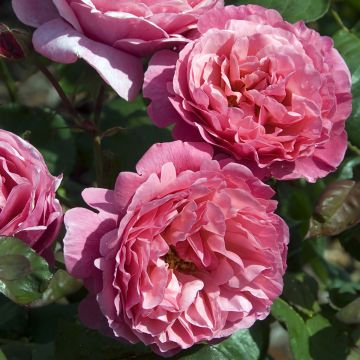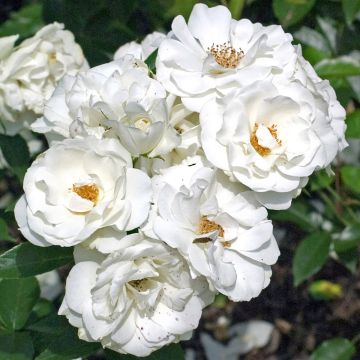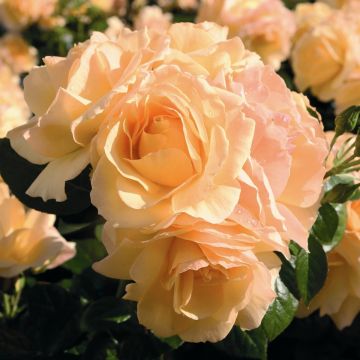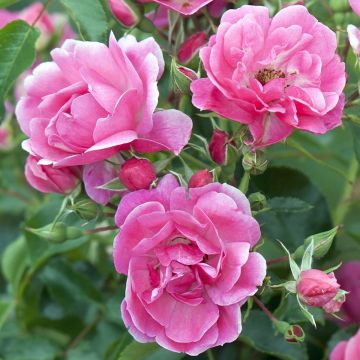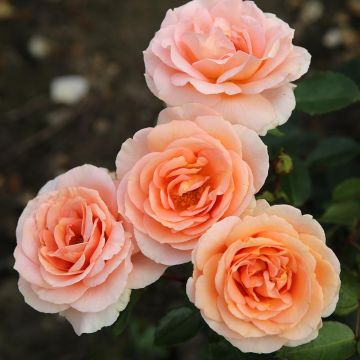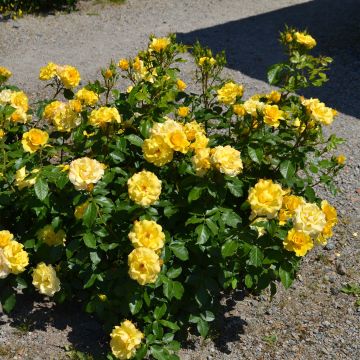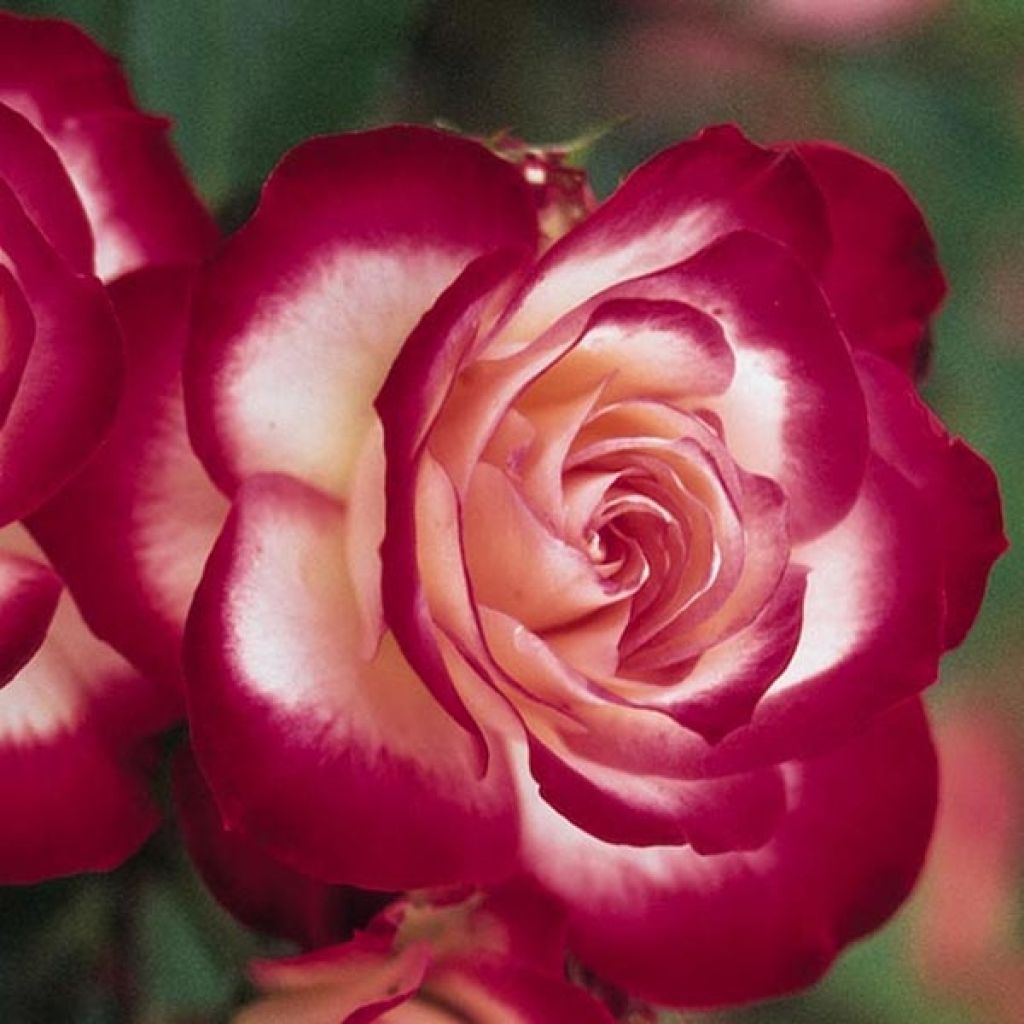

Rosa Jubilé du Prince de Monaco - Stem shrub


Rosa Jubilé du Prince de Monaco - Stem shrub
View more pictures
Hide images
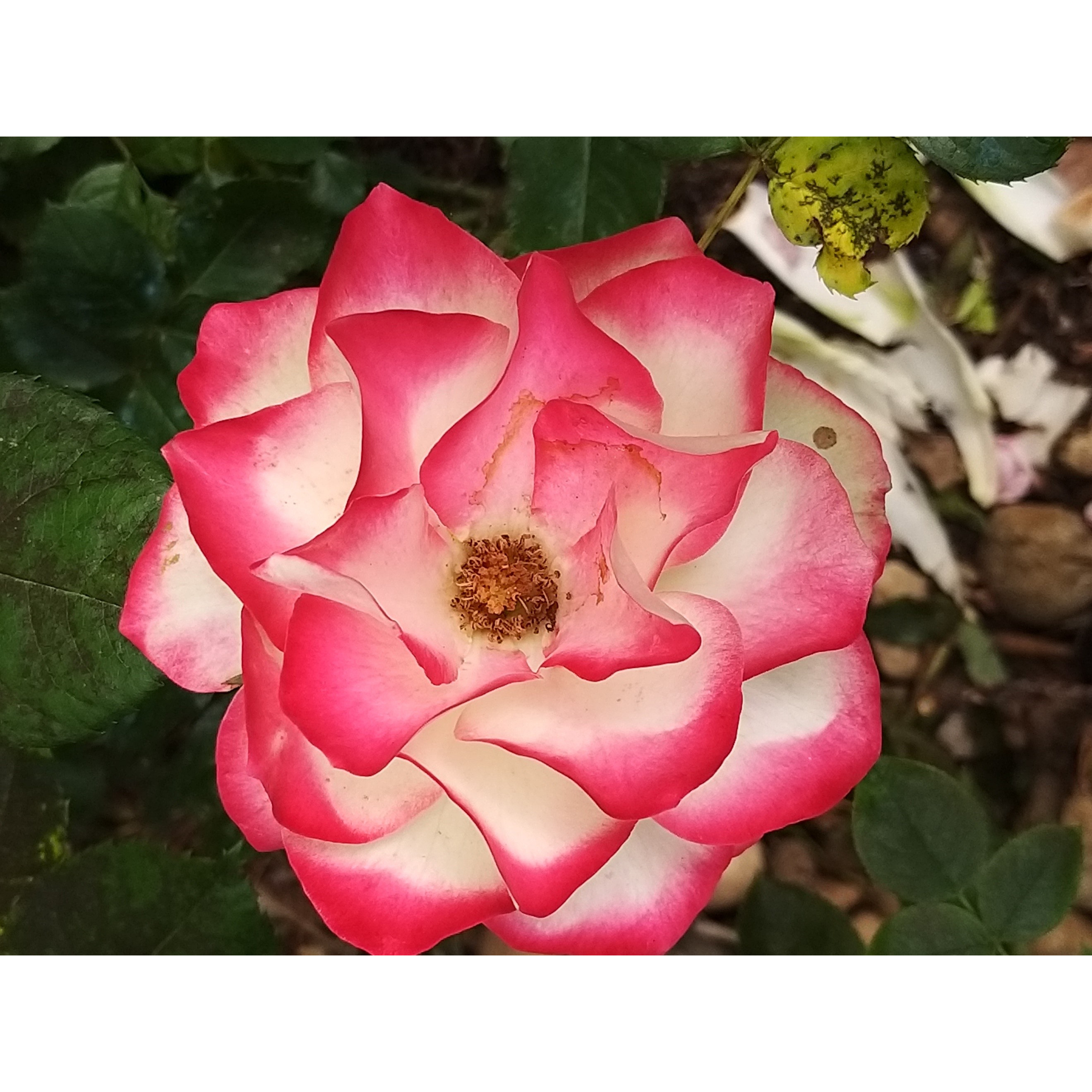
Thierry P.

June flowering - image 4
Thierry P. • 84 FR
Rosa Jubilé du Prince de Monaco - Stem shrub
Rosa x floribunda Jubilé du Prince de Monaco® Meisponge
Rose
Special offer!
Receive a €20 voucher for any order over €90 (excluding delivery costs, credit notes, and plastic-free options)!
1- Add your favorite plants to your cart.
2- Once you have reached €90, confirm your order (you can even choose the delivery date!).
3- As soon as your order is shipped, you will receive an email containing your voucher code, valid for 3 months (90 days).
Your voucher is unique and can only be used once, for any order with a minimum value of €20, excluding delivery costs.
Can be combined with other current offers, non-divisible and non-refundable.
Why not try an alternative variety in stock?
View all →This plant carries a 6 months recovery warranty
More information
We guarantee the quality of our plants for a full growing cycle, and will replace at our expense any plant that fails to recover under normal climatic and planting conditions.
Description
The Standard Rose Jubilee of the Prince of Monaco is a subject of great ornamental value, which deserves a place of honour in the garden. Exceptional roses are born on its vigorous stems, with the vivacity of their colour and the elegance of their form. Brilliantly bicoloured, they offer a powerful contrast between white and fuchsia red that irresistibly catches the eye. In addition to its ornamental qualities, it is a robust, very perpetual rose, whose foliage is resistant to diseases.
Standard roses are obtained by grafting a variety (here, the Jubilee of the Prince of Monaco bush rose) onto a single stem belonging to a different rose (Rosa canina, R. laxa or R. multiflora), the graft being done at a certain height, here at 50-60 cm (20-24in) from the ground. In very cold regions, it may be useful to protect the rootstock in winter.
The Standard Rose Jubilee of the Prince of Monaco is a magnificent creation by Meilland born with the new millennium, in 2000, and awarded many times in international competitions. This variety, belonging to the floribunda rose family, produces solitary roses or gathered in small clusters of 2 to 5 units. It is also related to the complex family of hybrid teas, recognisable by the shape of their flowers. It is a bush rose with excellent vigour. Grafted on a stem, it shows a characteristic habit, with a thin and vertical 'trunk' carrying a large rounded crown. The young shoots and leaves of this variety are copper-coloured. The adult foliage is bright green, matte, and not very susceptible to diseases. However, it is somewhat susceptible to black spot disease at the end of the season. This rose blooms from May-June to October, abundantly and regularly as long as it does not lack water or nutrients. Its flowers, 7 to 9 cm (3 to 4in) in diameter, are carried by strong, heavily thorny stems. Each one is composed of 35 petals that unfold around the centre. From white to cream in colour, the petals gradually take on intense fuchsia red to magenta as they open. The plant is deciduous in winter.
This Standard Rose Jubilee of the Prince of Monaco, with its elegant habit and its irresistibly immodest roses, is ideal in the centre of a bed of light perennials, along a path, near the patio, isolated in a small well-kept garden or in a large pot on the balcony. It pairs well with red and white blooms and forms stunning contrasts with blue or mauve flowers. To highlight it, consider lavender, scabiosa, perennial or shrubby sage, Nepetas, or even peach-leaved bellflowers. A groundcover composed of silver basket or lady's mantle will perfectly enhance it. Its cut flowers, with good durability, are naturally perfect in bouquets.
Report an error about the product description
Rosa Jubilé du Prince de Monaco - Stem shrub in pictures
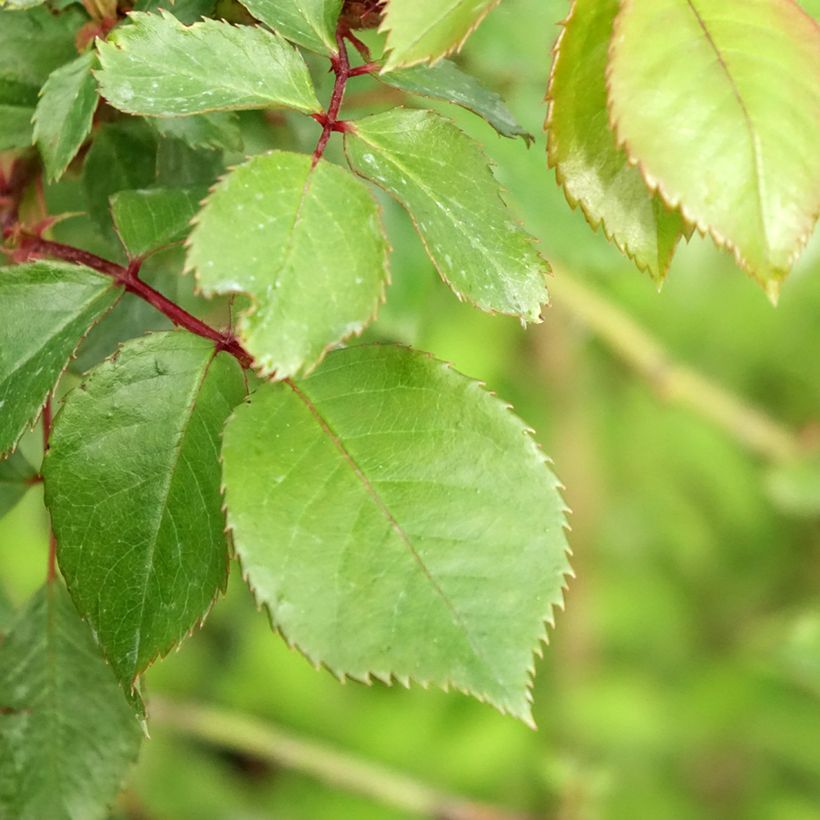

Plant habit
Flowering
Foliage
Botanical data
Rosa
x floribunda
Jubilé du Prince de Monaco® Meisponge
Rosaceae
Rose
Cultivar or hybrid
Planting and care
Plant the Jubilé du Prince de Monaco Stem Rose from November to March, in ordinary, well-prepared and well-drained soil. Roses prefer clay soils rather than light soils. In soils that are too sandy, compact or dry in summer, it is preferable to bury compost, decomposed manure or humus at the bottom of the planting hole. However, this rose dislikes waterlogged soils in winter. Place it in a sunny position, preferably in partial shade. Roses are hungry plants, so a specific fertiliser will be beneficial at the start of the growing season, and regularly throughout the flowering period. To encourage new blooms, regularly remove old faded flowers. Floribunda rose varieties are more vigourous and floriferous than large-flowered rose varieties. Therefore, in late winter, the stems should be pruned by about a quarter of their length (from 4 to 6 buds from the base of the stem). Always prune above an outward-facing bud so that the bush can bush out and the branches do not become tangled in the centre of the branches.
In regions with very cold winters, it is advisable to protect the grafting stock of standard roses (the 'trun'") by wrapping it in a thick winter cover.
Planting period
Intended location
Care
This item has not been reviewed yet - be the first to leave a review about it.
Similar products
Haven't found what you were looking for?
Hardiness is the lowest winter temperature a plant can endure without suffering serious damage or even dying. However, hardiness is affected by location (a sheltered area, such as a patio), protection (winter cover) and soil type (hardiness is improved by well-drained soil).

Photo Sharing Terms & Conditions
In order to encourage gardeners to interact and share their experiences, Promesse de fleurs offers various media enabling content to be uploaded onto its Site - in particular via the ‘Photo sharing’ module.
The User agrees to refrain from:
- Posting any content that is illegal, prejudicial, insulting, racist, inciteful to hatred, revisionist, contrary to public decency, that infringes on privacy or on the privacy rights of third parties, in particular the publicity rights of persons and goods, intellectual property rights, or the right to privacy.
- Submitting content on behalf of a third party;
- Impersonate the identity of a third party and/or publish any personal information about a third party;
In general, the User undertakes to refrain from any unethical behaviour.
All Content (in particular text, comments, files, images, photos, videos, creative works, etc.), which may be subject to property or intellectual property rights, image or other private rights, shall remain the property of the User, subject to the limited rights granted by the terms of the licence granted by Promesse de fleurs as stated below. Users are at liberty to publish or not to publish such Content on the Site, notably via the ‘Photo Sharing’ facility, and accept that this Content shall be made public and freely accessible, notably on the Internet.
Users further acknowledge, undertake to have ,and guarantee that they hold all necessary rights and permissions to publish such material on the Site, in particular with regard to the legislation in force pertaining to any privacy, property, intellectual property, image, or contractual rights, or rights of any other nature. By publishing such Content on the Site, Users acknowledge accepting full liability as publishers of the Content within the meaning of the law, and grant Promesse de fleurs, free of charge, an inclusive, worldwide licence for the said Content for the entire duration of its publication, including all reproduction, representation, up/downloading, displaying, performing, transmission, and storage rights.
Users also grant permission for their name to be linked to the Content and accept that this link may not always be made available.
By engaging in posting material, Users consent to their Content becoming automatically accessible on the Internet, in particular on other sites and/or blogs and/or web pages of the Promesse de fleurs site, including in particular social pages and the Promesse de fleurs catalogue.
Users may secure the removal of entrusted content free of charge by issuing a simple request via our contact form.
The flowering period indicated on our website applies to countries and regions located in USDA zone 8 (France, the United Kingdom, Ireland, the Netherlands, etc.)
It will vary according to where you live:
- In zones 9 to 10 (Italy, Spain, Greece, etc.), flowering will occur about 2 to 4 weeks earlier.
- In zones 6 to 7 (Germany, Poland, Slovenia, and lower mountainous regions), flowering will be delayed by 2 to 3 weeks.
- In zone 5 (Central Europe, Scandinavia), blooming will be delayed by 3 to 5 weeks.
In temperate climates, pruning of spring-flowering shrubs (forsythia, spireas, etc.) should be done just after flowering.
Pruning of summer-flowering shrubs (Indian Lilac, Perovskia, etc.) can be done in winter or spring.
In cold regions as well as with frost-sensitive plants, avoid pruning too early when severe frosts may still occur.
The planting period indicated on our website applies to countries and regions located in USDA zone 8 (France, United Kingdom, Ireland, Netherlands).
It will vary according to where you live:
- In Mediterranean zones (Marseille, Madrid, Milan, etc.), autumn and winter are the best planting periods.
- In continental zones (Strasbourg, Munich, Vienna, etc.), delay planting by 2 to 3 weeks in spring and bring it forward by 2 to 4 weeks in autumn.
- In mountainous regions (the Alps, Pyrenees, Carpathians, etc.), it is best to plant in late spring (May-June) or late summer (August-September).
The harvesting period indicated on our website applies to countries and regions in USDA zone 8 (France, England, Ireland, the Netherlands).
In colder areas (Scandinavia, Poland, Austria...) fruit and vegetable harvests are likely to be delayed by 3-4 weeks.
In warmer areas (Italy, Spain, Greece, etc.), harvesting will probably take place earlier, depending on weather conditions.
The sowing periods indicated on our website apply to countries and regions within USDA Zone 8 (France, UK, Ireland, Netherlands).
In colder areas (Scandinavia, Poland, Austria...), delay any outdoor sowing by 3-4 weeks, or sow under glass.
In warmer climes (Italy, Spain, Greece, etc.), bring outdoor sowing forward by a few weeks.






























